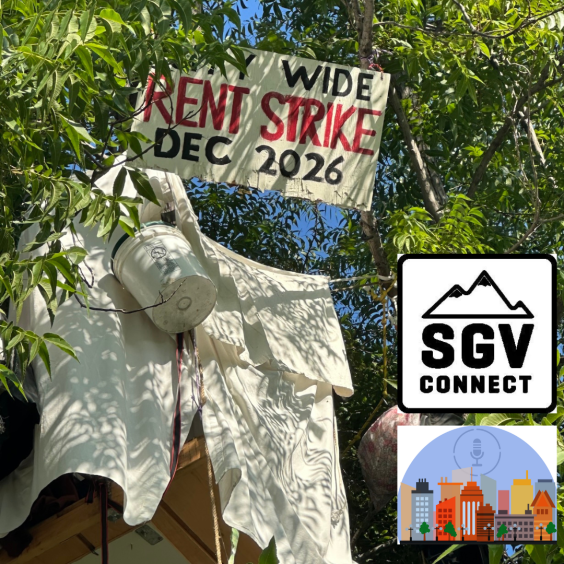As Los Angeles continues to look for new sites to build permanent supportive housing, bridge housing, emergency shelters and other developments to alleviate homelessness; Councilmembers Mike Bonin and José Huizar are also encouraging the city to look at shared housing as a partial solution to a regional homeless crisis.
Bonin authored a motion, co-sponsored by Huizar, (council file 18-0475) for the City Council to fund a city-wide pilot project that would house 1,500 unhoused Angelenos for $1 million per Council District. The city would work with “SHARE! Collaborative Housing,” a public-private partnership that matches people - persons with disabilities, persons experiencing homelessness or in danger of experiencing homelessness - with affordable, permanent supportive housing.
"Even if the program failed and only housed, hypothetically, four people for $1 million, it would have housed twice as many people than if we spent that money on two units of permanent supportive housing," explains Bonin.
Both L.A. City Councilmembers Mike Bonin and José Huizar have experience with SHARE!. In 2009, SHARE! opened a facility on Broadway in the portion of downtown Los Angeles that Huizar represents. In 2016, Bonin sponsored a small pilot program in Venice. In a post on Medium, Bonin explains the successes of the 2016 pilot program:
In 2016, I funded a shared housing pilot project in Venice. I awarded SHARE! a $50,000 grant and asked them to house as many people as they could within six months with their “shared recovery housing” model. Within four months, SHARE! housed 32 people and created 107 new beds.
While SHARE! is making its mark through collaborative housing, it is also known as a home for self-help groups. Since 2005, SHARE! has provided space and resources to groups focused on helping individuals overcome a range of mental illness, addiction, or other forms of trauma. The SHARE! housing model is built on the concept that being part of a community of people working through similar issues is an important part of a recovery.
SHARE! and other collaborative housing organizations do not build new housing. Rather, they work with homeowners and people experiencing homelessness or in danger of falling in to homelessness to get people off the streets. For many people "shared housing" means "shelters" or "bridge houses," but SHARE! is placing clients in houses in single-family and multi-family neighborhoods with housemates, and with a roommate who is experiencing similar challenges.
To take part in the program, SHARE! clients need to have income to make rent, usually less than $600 a month. Clients are responsible for making payments directly to the homeowner. In addition to case worker visits and any other appointments the client makes to qualify for assistance, the house is also visited by a a "peer mentor" who has similar life experiences to those in the house. The peer mentor helps connect SHARE! participants to self-help groups, medical and psychological professionals, and other forms of government aid.
The social aspect of the co-living situation and placing clients in residential neighborhoods is a critical part of the process. Residents are encouraged to take part in community events and to get to know their neighbors. When I visited SHARE!'s offices in Culver City, I met with Jason Robison, a Program Director with SHARE!, who explained why he sees their model as one that brings about stronger community for clients and for pre-existing residents of the neighborhoods with SHARE! homes.
"When a new building goes up...," Robison says of newly constructed permanent supportive housing, "everyone that’s already in that community sees the people that live there as ‘the other.’ Then everyone that lives in that building is prevented from having a relationship with that neighborhood."
While residents in SHARE! housing are permitted to stay indefinitely, many move on voluntarily in short order. Over a quarter of people that move into collaborative housing units in Los Angeles are fully employed and living in market rate housing within a year. On average, each SHARE! bed houses 1.6 people every year.
It was this track record that caught Bonin's attention back in 2015 when he was working with advocates and service providers to create Venice Forward. Venice Forward's mandate was to provide options to get as many homeless people off the Venice streets as possible - and into better conditions be they shelters, bridge housing, or permanent housing as appropriate.
In eight months, using SHARE!'s collaborative housing services, Venice Forward moved 80 unhoused Venice residents into homes throughout the county. SHARE! prefers to house people near where they are already living, but at the time there was not sufficient housing available in Venice.
It was then that Bonin stepped in with a $50,000 grant, administered by the Los Angeles Homeless Services Authority (LAHSA) a joint city-county program that administers services and funding.They have housed 35-40 additional people in Venice every year since the city's pilot program began in 2016.
It's that success that he hopes to replicate citywide, but collaborative housing has not been completely embraced by government agencies that are tasked with reducing homelessness.
“Even though shared housing is part of the city’s Comprehensive Homelessness Strategy, government bureaucracy has stymied attempts to adequately fund it. Upstart programs threaten the status quo,” Bonin writes. “Shared housing doesn’t fit neatly into traditional government funding streams. Shared housing advocates do not have the vocal support of developers and foundations, which focus on PSH. Officials warn that shared housing is unproven, and is not how we have usually addressed homelessness.”
None of this is to say that SHARE! is an easy solution to end all homelessness permanently. Officials estimate there are 11,000 vacant single-family homes in Los Angeles. Even if all of them were used by SHARE!, it would still leave tens of thousands of people unhoused based on the 2019 homeless count.
For one thing, greater collaboration between SHARE! and local law enforcement is needed. Supervisor Janice Hahn reached out to SHARE! for help housing 48 people in an encampment in Lomita. The contract began on November 1, and by the time I interviewed Robison in mid-November, local police had broken up the encampment after receiving complaints from local homeowners. The action made it difficult to track down and identify the people who Hahn was seeking to aid.
But stories such as this one don't dampen Robison's enthusiasm for the idea that a combination of housing, treatment and socialization will help people suffering from trauma, addiction or illness overcome their struggles.
“We have this belief in America that once you have a mental health issue, that’s it. You’re mentally ill, even though there’s this thing called ‘recovery’,” Robison contends. “People thrive in their lives, and manage their lives and can do really well if they have the social support that allows them to do that.”






